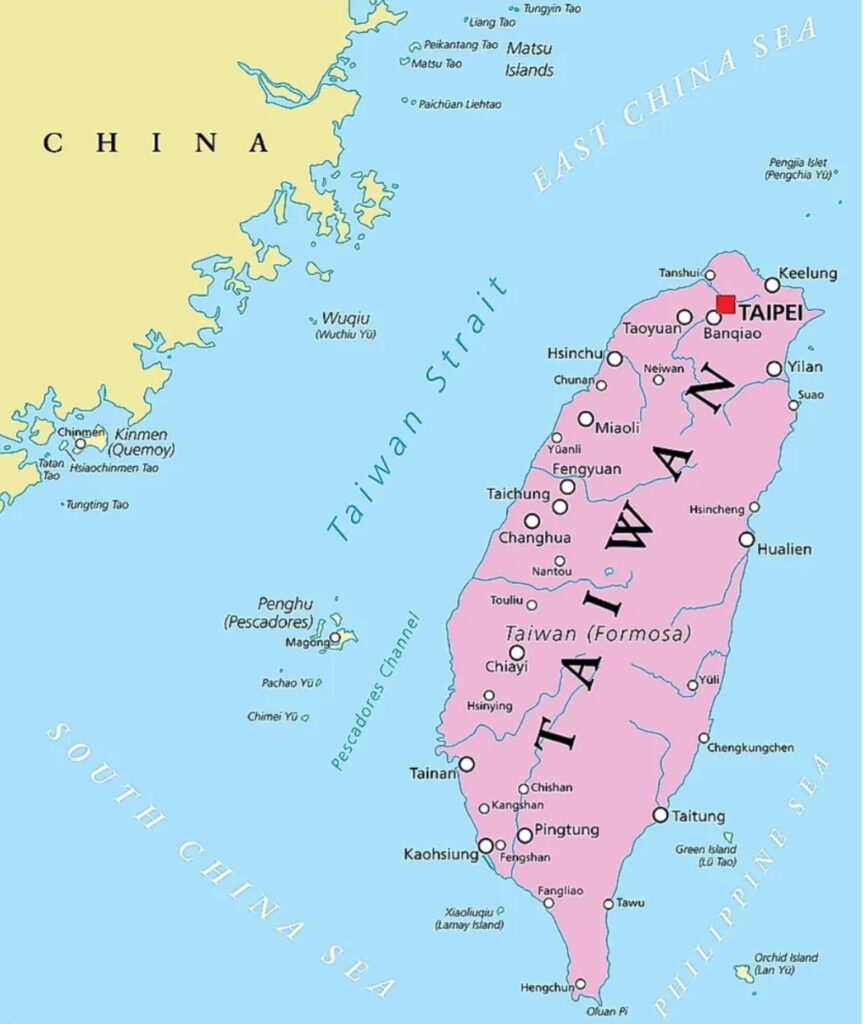By: Harshit Tokas, Research Analyst, GSDN

The upcoming 2024 Taiwanese presidential elections scheduled on January 13, 2024 features a three-way race among Vice President William Lai of the Democratic Progressive Party (DPP), New Taipei City Mayor Hou Yu-ih of the Kuomintang (KMT) and former Taipei City Mayor Ko Wen-je of the Taiwan People’s Party (TPP). This analysis focuses on Hou Yu-ih’s foreign policy and his stances on critical issues concerning cross-strait relations, defense and international partnerships.
Hou Yu-ih, the KMT’s presidential nominee and current Mayor of New Taipei City, initially lacked substantial foreign policy experience, having primarily served in law enforcement roles before his mayoral positions. However, his campaign for the presidency has pivoted toward positioning the election as a choice between war and peace, framing the KMT as the party prioritizing peace and cross-strait stability, contrary to the DPP’s rhetoric of democracy versus autocracy.
Central to Hou and the KMT’s strategy is the promotion of cross-strait dialogue as a key pillar for peace and stability in the Taiwan Strait. They perceive the absence of dialogue as heightening the risk of conflict, advocating that increased cooperation between Taiwan and China diminishes the likelihood of war. However, the KMT’s reliance on the “1992 Consensus,” where both sides recognize one China but with differing interpretations of the governing entity, creates ambiguity, especially with China interpreting it differently, seeing Taiwan as a part of China.
Initially hesitant to fully embrace the 1992 Consensus due to its lack of resonance among voters, Hou’s stance evolved over time, aligning with powerful KMT figures, and eventually endorsing it in his foreign policy narrative. He emphasizes the importance of Taiwan’s democratic system while opposing moves towards formal independence or absorption into China’s “One Country, Two Systems” framework, aligning with public sentiment against such an arrangement.
On the economic front, Hou intends to resurrect the Cross-Strait Services Trade Agreement (CSSTA), aiming to open Taiwan’s service sectors to Chinese investment. This proposal, which was a flashpoint sparking the Sunflower Movement in 2014, raises concerns regarding increased economic dependence on China. Hou also aims to allow Chinese students in Taiwan to work during their studies, suggesting an opening toward more economic integration.
Regarding defense, Hou highlights the necessity of bolstering Taiwan’s military capabilities as a foundational component in dealing with China. Diverging from the prior KMT administration’s approach of stagnant defense budgets, Hou advocates for a robust defense strategy, emphasizing the importance of deterrence and preparedness in the face of potential threats from mainland China.
Hou also emphasizes the strengthening of Taiwan’s relations with the United States and Japan. He expresses support for initiatives like the US-Taiwan Initiative on 21st Century Trade and desires enhanced security cooperation with the US, intending to conduct joint military exercises, actions that China opposes. Moreover, Hou seeks to improve ties with Japan, understanding its crucial role in the larger regional dynamics.
As the election approaches, Hou’s embrace of more traditional KMT policies, including the 1992 Consensus, aims to secure support within his party. His challenge lies in balancing cross-strait dialogue with defense priorities and managing potential demands from China that could restrict Taiwan’s autonomy or security arrangements.
If Hou secures victory, China may initially reduce tensions in the Taiwan Strait, seeking closer ties with Taiwan. However, differing stances on unification might eventually lead to challenges, potentially straining cross-strait relations again. How China under Xi Jinping handles this divergence in goals, whether tolerating the status quo or pushing for resolution—remains uncertain.
Hou Yu-ih’s evolving foreign policy framework presents a delicate balancing act between maintaining peace, asserting Taiwan’s autonomy, and managing relations with China and global allies, a landscape laden with complexities and potential pitfalls as Taiwan navigates its future trajectory.


I simply could not go away your web site prior to suggesting that I really enjoyed the standard info a person supply on your guests? Is going to be back incessantly to investigate cross-check new posts.
Ive read several just right stuff here Certainly price bookmarking for revisiting I wonder how a lot effort you place to create this kind of great informative website
It was great seeing how much work you put into it. The picture is nice, and your writing style is stylish, but you seem to be worrying that you should be presenting the next article. I’ll almost certainly be back to read more of your work if you take care of this hike.
I thought you did a great job on this. Although your language is excellent and the picture is enticing, you come across as nervous about what you might be giving next. If you save this walk, I hope you will come back here often.
I simply could not go away your web site prior to suggesting that I really enjoyed the standard info a person supply on your guests Is going to be back incessantly to investigate crosscheck new posts